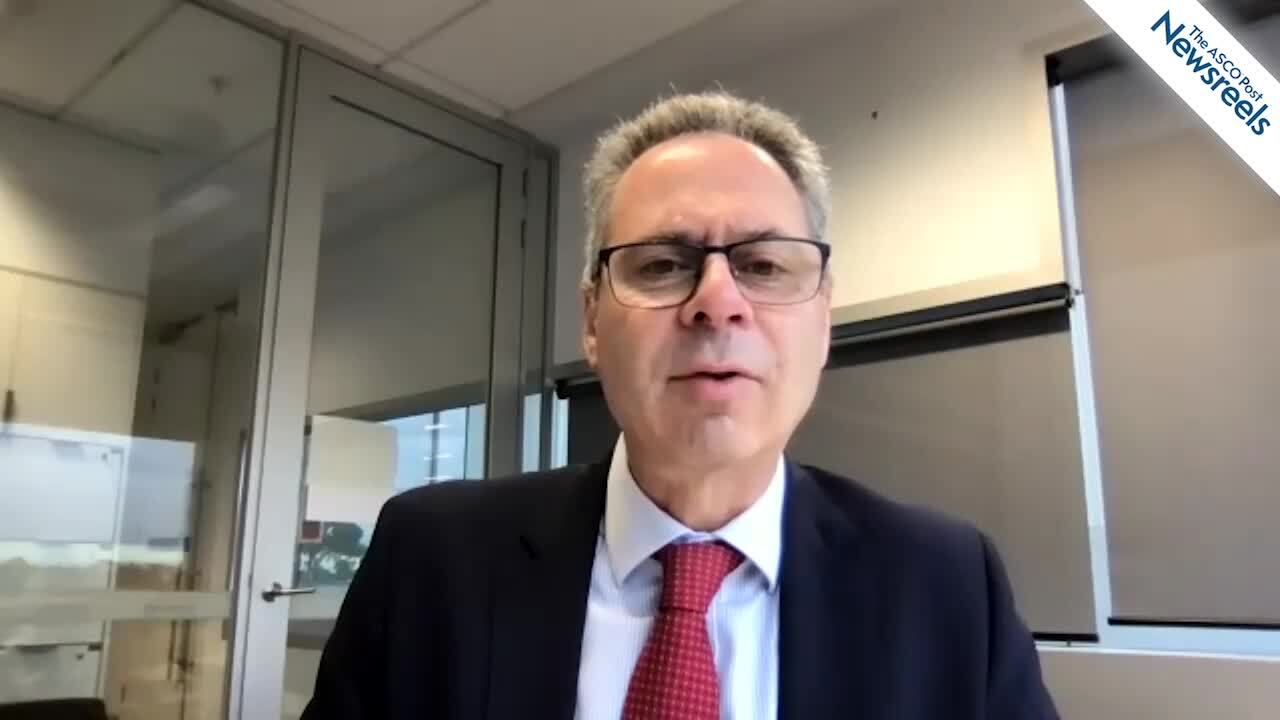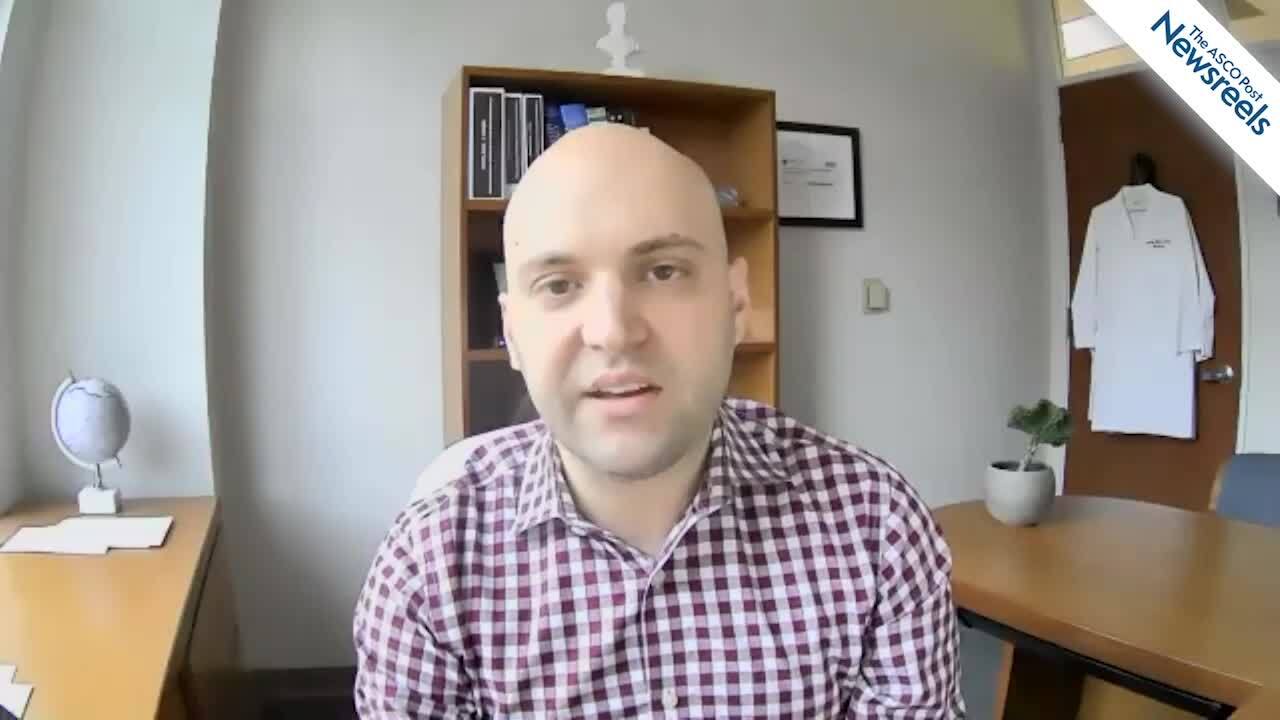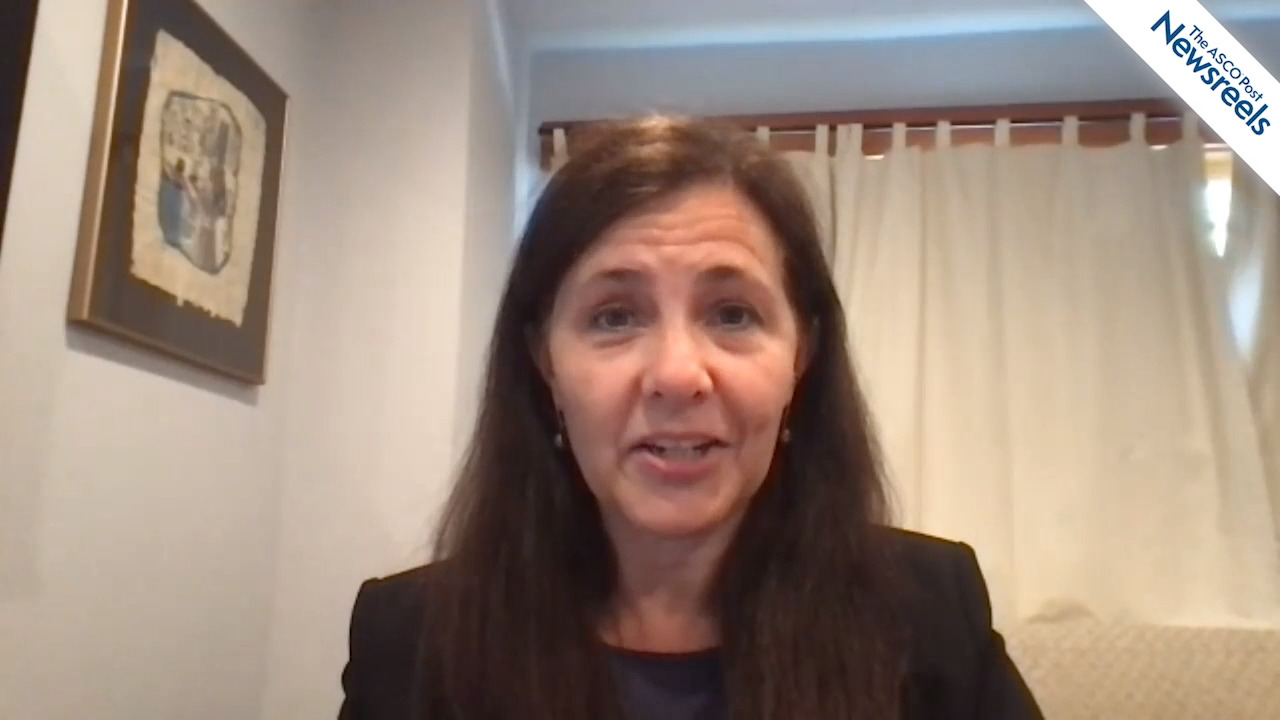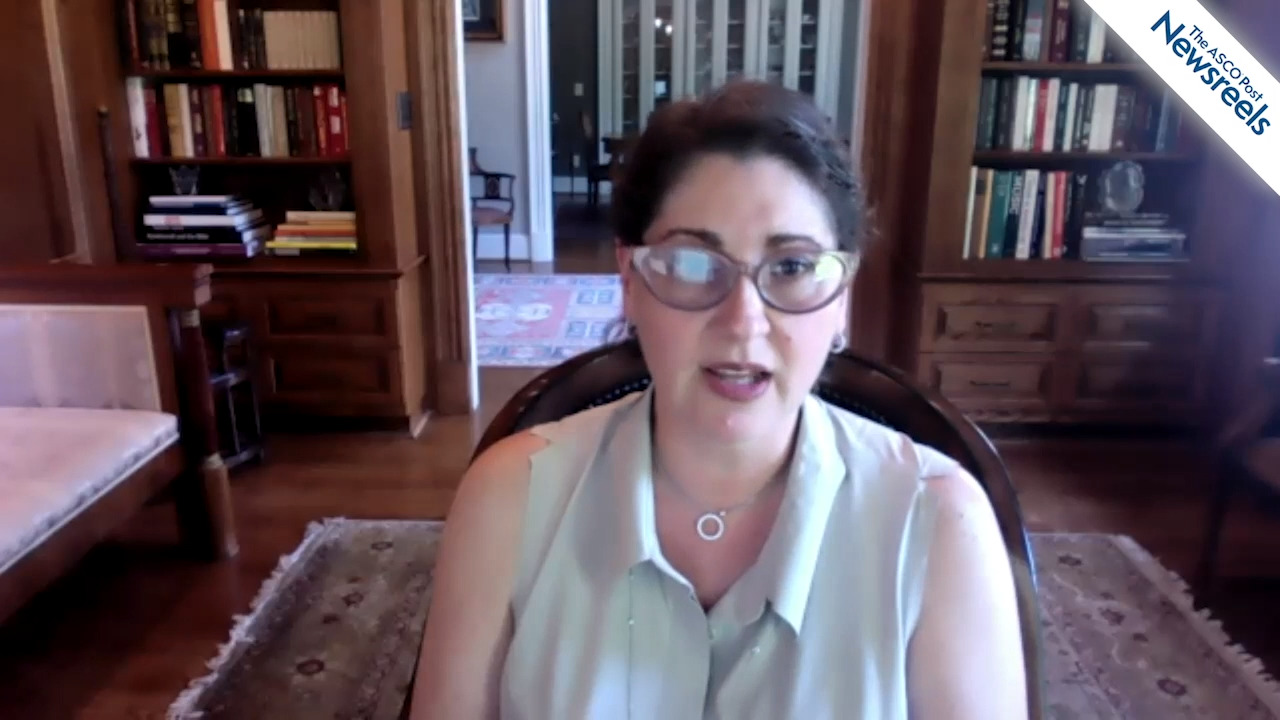Martin Reck, MD, PhD, on NSCLC: Nivolumab, Ipilimumab, and Chemotherapy for Advanced Disease
2021 ASCO Annual Meeting
Martin Reck, MD, PhD, of LungenClinic, discusses a 2-year update of the CheckMate 9LA study, which sought to determine whether nivolumab plus ipilimumab combined with two cycles of chemotherapy is more effective than four cycles of chemotherapy alone as a first-line treatment for patients with stage IV non–small cell lung cancer (Abstract 9000).
The ASCO Post Staff
Geoffrey J. Lindeman, MBBS, PhD, of Peter MacCallum Cancer Centre, discusses results from the phase II VERONICA study, which compared venetoclax plus fulvestrant with fulvestrant alone in women with estrogen receptor–positive, HER2-negative, locally advanced or metastatic breast cancer who experienced disease recurrence or progression during or after treatment with CDK4/6 inhibitor therapy (Abstract 1004).
The ASCO Post Staff
Jingxuan Zhao, MPH, of the American Cancer Society, discusses study findings that showed worse long-term survival among low-income patients with cancer who live in states that have not expanded Medicaid eligibility (Abstract 6512).
The ASCO Post Staff
Nicholas J. Short, MD, of The University of Texas MD Anderson Cancer Center, discusses early results from a phase II study which showed that combining ponatinib and blinatumomab in patients with Philadelphia chromosome–positive acute lymphoblastic leukemia may prove to be an effective chemotherapy-free regimen that might reduce the need for allogeneic hematopoietic stem cell transplant (Abstract 7001).
The ASCO Post Staff
Heather A. Wakelee, MD, of Stanford University Medical Center, discusses the primary disease-free survival results of IMpower010, a phase III study that compared adjuvant atezolizumab vs best supportive care after adjuvant chemotherapy in patients with early-stage resected non–small cell lung cancer (Abstract 8500).
The ASCO Post Staff
Ingrid A. Mayer, MD, of Vanderbilt University Medical Center, discusses phase III results from a trial that showed patients with triple-negative breast cancer who had residual invasive disease after neoadjuvant chemotherapy had lower-than-expected invasive disease–free survival, regardless of study treatment with platinum-based chemotherapy or capecitabine (Abstract 605).





